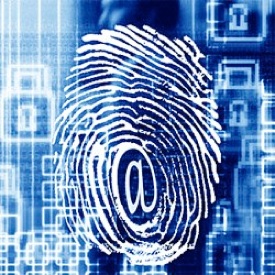Impact of Online Identity
(What is a Digital Footprint and how do we keep our children safe on the internet?)

It is scary enough to come to the realization that basically everything we do leaves a digital footprint of some kind. It is even scarier to realize that, unlike us, your child started to leave their digital footprint before they were born! The short video below “Digital Dossier” will give you a better idea of how your child began leaving their digital footprint 5 months before they were born.
This video is alarming and a rude wakeup call to the new digital landscape that we live in. At this point there is no turning back. Our children will be growing up in a completely different world than just a decade ago. They will grow up having identities on and offline. These multi and varied online personalities will follow them throughout their lives. Already in this new digital landscape we are seeing how the Internet is reshaping relationships and diminishing our privacy. We are now all constantly connected to the net through a plethora of devices and our children will rely on this technology more and more to mediate their social relationships.
As adults and educators we need to start dealing with these issues sooner than later. Elementary school is the ideal time to start having these discussions with our digital natives. As I said before there’s a conversation, not a lecture, that needs to take place in order for all parties involved to be more at ease and proactive in this rapidly changing world. Children must be talked to about their digital footprint and all this entails in elementary school. A poor choice made in middle or high school will be magnified if it is posted all over the internet. We need to teach our children to be mindful early of the long lasting effects that their actions may cause. Unfortunately we can’t stop our children from doing the occasional dumb or boneheaded thing. We can, however, begin to teach them how to navigate in their new digital landscape so that a sudden momentary lapse of judgement doesn’t turn into a long lasting scar on their digital footprint.

By letting the digital natives take the lead we as adults need to begin thinking of the support network that needs to be established around students. In shaping solutions to the problems that arise, we don’t need to think radically for new models. Often, the old-fashioned solutions that have worked in the past will also help in the digital age. All we need are engaged parents and teachers with common sense. “A lot of the things we are worried about - bullying, stalking, copyright violations, and so forth are things we have handled for decades, if not centuries. We can, as a society, handle them in the digital age, too, without the hysteria that has surrounded them. We too often overestimate the ways in which the online environment is different from real space to our detriment.”
Like it or not parents and teachers are the ones most responsible in the decisions young people are making. It is easy to be intimidated but it is more important to remember that “the traditional values and common sense that have served us well in the past will be relevant in this new world too.” Instead of banning technologies or outright ignoring them, parents and teachers need to let Digital Natives be our guides. Only through this can open and honest communication begin.

